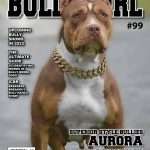 You dog has been your best friend for a number of years now. You’ve done a great job in caring for him up this point. Now that he’s entering the senior citizen part of his life, it’s time to re-access his needs and develop a new regime of care. Older dogs, just like young puppies, need a different level of care and attention than our young adult dogs.
You dog has been your best friend for a number of years now. You’ve done a great job in caring for him up this point. Now that he’s entering the senior citizen part of his life, it’s time to re-access his needs and develop a new regime of care. Older dogs, just like young puppies, need a different level of care and attention than our young adult dogs.
At what age is a dog considered a senior?
Larger breed dogs are considered seniors at age 6. Smaller breed dogs generally live slightly longer and are not considered a senior until age 7.
Older pets develop many of the same illnesses are people. Cancer, heart disease, kidney failure, diabetes, joint and bone disease, senility.
Diet and nutrition are always important in every phase of life, however is becomes critical as they age in helping them stay active and playful. Hand in hand with a prior diet is a proper weight. Keep your dog at the suggested weight for his/her breed. Having an overweight dog can put unnecessary stress on their internal organs and joints, turning a simple effortless activity into an uphill run. Senior pets should be placed on a diet which is easily digestible, with anti aging nutrition, and a specific calorie intake based on your pets weight.
Dental care is very important in older dogs. Proper cleaning of your dogs teeth will reduce tarter and gingivitis, which both can send bacteria flying threw your pets bloodstream and damage your dogs internal organs.
Proper exercise will keep your dog both mentally and physically fit. Keep your dogs age in mind when deciding on your fitness plan. An older dog will benefit from a shorter, less strenuous walk, but it will keep him feeling good. Exercise also will improve mental health and reduce senility by keeping them mentally engaged in an activity.
Just like with humans it’s important to have regular check-ups for your pet to make sure their bodies are functioning properly. Once your pet reaches their senior years you should increase your annual vet visit to a semi- annual visit. The key to keeping your dogs healthy is catching any issues early and addressing them. Be aware of the common ailments for your dogs breed. Some dogs are prone to arthritis or hip problems, while others may be prone to kidney issues. Know the early warning signs of common problems in your breed to ensure early detection and treatment. Your semi-annual checkup should be slightly more invasive then in their younger years. Routine blood work should be done for early detection of disease.
Keep in mind breeders that dogs who are not neutered or spayed are at higher risk of mammary, testicular and prostate cancer. It is a good idea once your dog has finished their reproductive responsibilities to spay/neuter them and let them enjoy their senior years.
Any change in your pets behavior, mood, eating habits, even odor, should be considered a sign or indicator something in going on. Talk to your vet immediately. Early treatment can increase your pets life and happiness.









